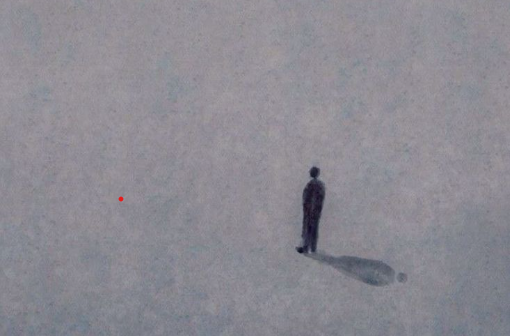By Polina Pallieraki,
In a world that rewards image and strength, there are people who seem to have it all, a smile always ready, a reassuring social presence, a seemingly balanced life. And yet, behind this “good” facade, many experience an invisible burden: loneliness. It is not the loneliness of isolation, but the loneliness you feel when no one understands that you are suffering, because everyone thinks you are good. This article touches on this silent aspect of the human experience, the loneliness of the “strong”.
Many people grow up believing that they must appear strong, optimistic and “good” regardless of how they feel inside. This becomes a habit, second nature. The face they present to the outside world is stable, smiling and reassuring, almost never showing pain, anxiety or weakness. This image, however, gradually becomes a trap: when others see you as “good,” they assume you are not in need. No one asks if you are really okay. Thus, loneliness becomes deeper, not because there are no people around, but because no one sees the truth.
The loneliness of those who “seem well” is often more severe, because it is not accompanied by external recognition. Their difficulties are canceled out with phrases like “but you are always so positive” or “I never imagined you would have such problems.” The result is that these people feel guilty for feeling bad, as if they have no right to be sad or weak. They isolate themselves even more, afraid that if they speak up, they will disappoint those around them or sound excessive.
As time goes by, this internal pressure grows. These people do not ask for help easily, nor do they allow themselves to appear vulnerable. But even the “strong” have limits. When they reach a point of mental exhaustion, the breakdown comes suddenly, and often shocks those around them. Others find it hard to believe that “that person who had everything under control” is suffering. This shows how superficially we often observe each other and how easily we get carried away by the image.

The antidote to this loneliness is not complete exposure or tearing down our image, but learning to speak honestly, to create relationships where vulnerability is not weakness, but a sign of trust. We also need to learn to listen to each other more carefully, without assuming that someone “looks good” therefore “is good.” The more we open up space for authenticity, the fewer people will feel alone in the crowd.
The loneliness felt by those who look “good” is one of the most misunderstood forms of emotional pain. It doesn’t scream, it doesn’t demand attention, it doesn’t show up, and that’s why it’s often ignored. It’s incumbent on all of us to cultivate an environment of greater empathy and truth. To learn to not only ask “how are you,” but also to listen with genuine interest to the answer. And if we’re among those who hide their loneliness behind a smile, let’s remember: We don’t always have to be “good” to deserve love, attention, and care. Being human is enough.
References
- Μοναξιά: είδη μοναξιάς, αιτίες, συνέπειες, αντιμετώπιση. i-psyxologos. Available here
- It’s Okay to Feel Lonely: What Feelings of Loneliness Can Teach You and How to Handle Them. Mindful Life. Available here
- You Can Be Happy and Lonely At the Same Time. The Growth of Equation. Available here




